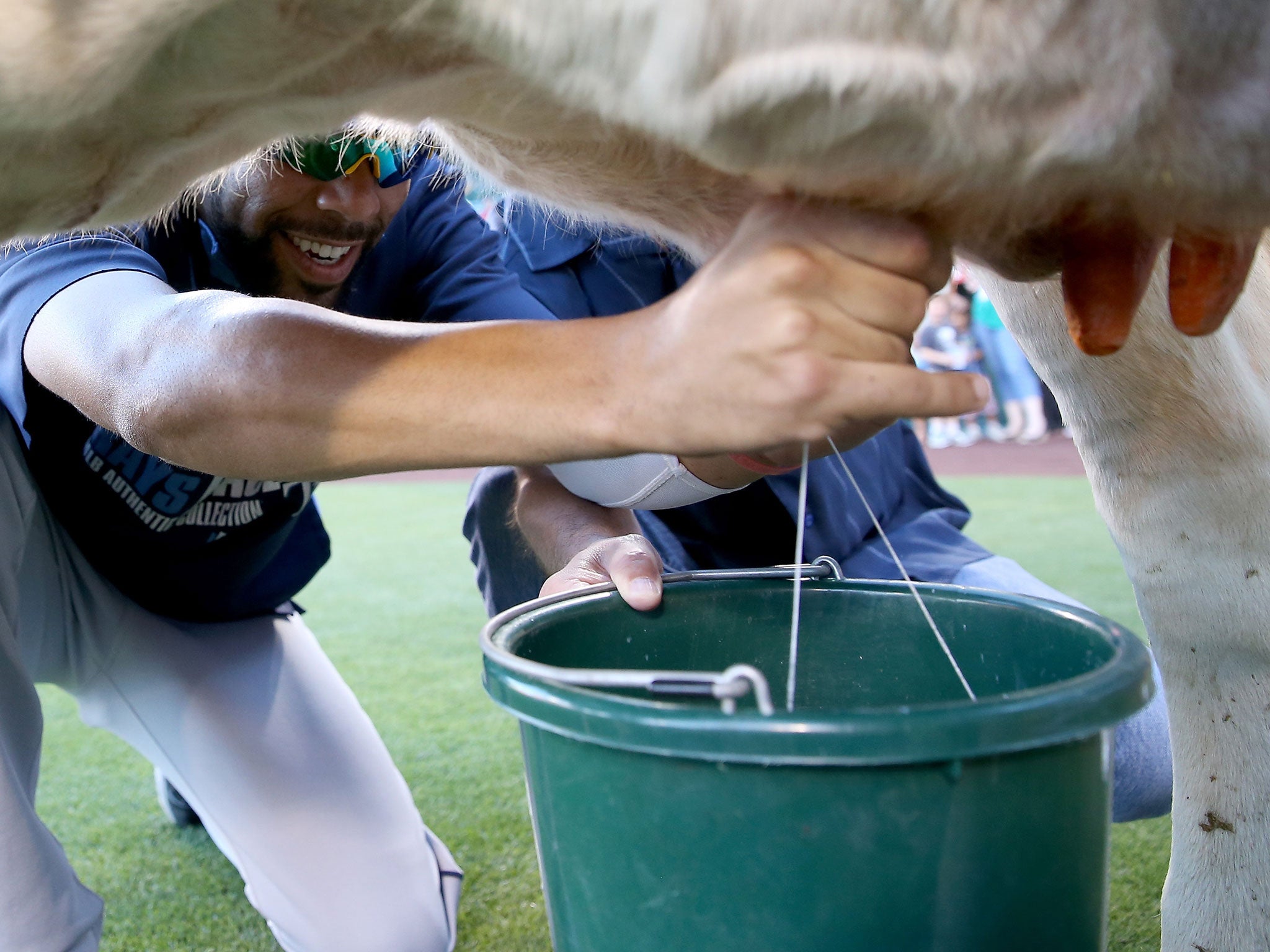I might have failed to milk a cow, but in rural Russia tourism is booming
In the mountains of Russia’s Dagestan, I’ve been present at sheep shearing and moving cows from the lowlands to high-altitude summer grazing spots at 4am in the morning, writes Oliver Carroll


May: the time of year that Muscovites attempt to reverse vitamin D deficits with an overdose of summer sun abroad.
Covid has changed the usual equations this year and, for the first time in a long time, internal destinations are all the rage. No more fashionable at present are the mountains of Dagestan, which is where I’ve headed for my post-winter fix.
Nestled at Russia’s southernmost border, Dagestan has a rich history that straddles thousands of years, many neighbouring civilisations, Christianity and now (mostly) Islam.
In recent years, the region was perhaps unfairly associated with insurgency and war – it was the main reason I came – but all that is beginning to change.
Now, barely discovered destinations like Chokh, with its ringside views of the stunning Caucasus mountains, and neighbouring Gamsutl, a ghost town on a stunning mountain ridge, are seeing unprecedented numbers of Russian tourists – and are rapidly adapting to new demands.
Previously derelict buildings are being turned into impromptu guest houses. In Chokh, works are also under way to build a luxury five star hotel and a helipad.
I’m staying somewhere a little less jarring: a restored 150-year-old hillside residence called Ethnodom.
The arcs and faded splendour of the guest house remind you of Chokh’s famous history: first as a crossroads in the Great Silk route and later as a rich, pro-Tsarist outpost, but not before taking a different side altogether – and being mostly destroyed – in the Caucasian wars of the mid-19th century.
Zaur Tsokholov, the tall, wide-shouldered local responsible for giving the building – and Chokh – a new lease of life, says he was driven by a dream to return his native village to its previous glory.
In 2008, when the entrepreneur arrived back from Moscow (in local parlance “from Russia”), his village was in a rather different state. Only a few lights flickered in the windows. The local collective farm was no more. Locals, let alone tourists, fled the place at the first opportunity.
Now, you’d be lucky to find a bed in his guest house this side of September.
At the village square, some complained that the tourist inflows were changing local habits. People are becoming more rushed, tight, more Russian, one said. Whatever the truth of that, they have some way to go.
In my few days here, locals opened every possible door into their rural lives. I’ve been present at sheep shearing and moving cows from the lowlands to high-altitude summer grazing spots at 4am in the morning. I was even allowed to milk a cow.
A video of that clumsy episode – which sees The Independent’s correspondent spectacularly fail the job in hand, before being dispatched by the rear hoof of an unimpressed beast – was shared around the village’s WhatsApp group to much hilarity.
In the local patriarchal order, as I’m later told, milking a cow is considered a shameful job for a man (for some reason, the unequal opportunities directive does not extend to milking sheep).
Tsokholov, who for all his regenerative vision remains a conservative man of the mountains, barely hides his shock when he hears of The Independent’s milking exploits.
But then he watches the video, and much cackling ensues. Something seems to have shifted. Has my urban idiocy come to the cause of local feminism? It’s too early to tell.
Yours,
Oliver Carroll
Moscow correspondent
Join our commenting forum
Join thought-provoking conversations, follow other Independent readers and see their replies
Comments